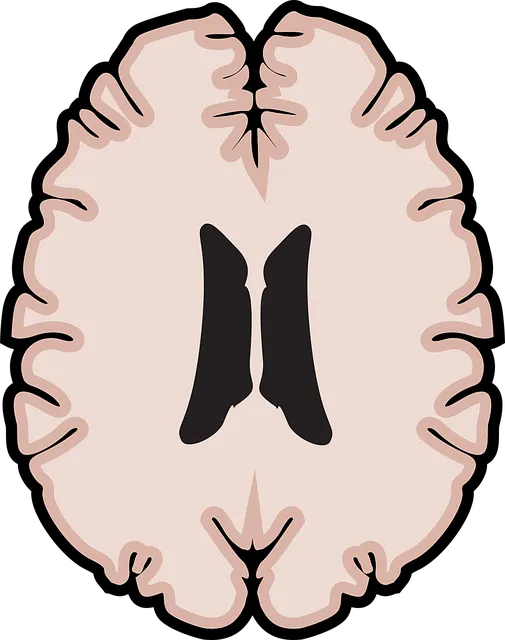Mental health professionals face unique risks like emotional exhaustion and burnout due to sensitive client information and intense connections. Westminster Kaiser mental health classes mitigate these risks through self-awareness exercises, self-esteem improvement, boundary setting, debriefing, risk assessment, crisis management, tailored intervention strategies, cultural competency, and proactive safety cultures. Their comprehensive approach includes self-care practices, sensitivity training, burnout prevention, Trauma Support Services, continuous staff training, workshops, supervision, peer review, and patient feedback to enhance resilience, improve client outcomes, and create healthier work environments.
“Mental health professionals face unique challenges, necessitating strategic risk management planning. This article explores essential aspects of mitigating risks within the context of Westminster Kaiser mental health classes. We delve into understanding specific professional vulnerabilities, emphasizing the significance of risk assessment techniques. Through a structured approach, we guide readers through developing tailored risk management plans and implementing safety strategies in practice. By adopting these practices, professionals can enhance patient care and foster a secure environment, ensuring the highest standards of mental health service delivery.”
- Understanding Mental Health Professional's Unique Risks
- The Role of Risk Assessment in Westminster Kaiser Mental Health Classes
- Developing a Comprehensive Risk Management Plan
- Implementation and Continuous Improvement Strategies for Safety in Mental Health Practice
Understanding Mental Health Professional's Unique Risks

Mental health professionals face unique risks that differ from their counterparts in other industries. They are constantly exposed to sensitive and often traumatic information shared by clients, which can lead to emotional exhaustion and burnout if not properly managed. The nature of their work involves intense human connections, making them vulnerable to secondary trauma or “compassion fatigue.” This is particularly relevant for those providing direct care or counseling services in settings like hospitals, clinics, or private practices.
Westminster Kaiser mental health classes often emphasize the importance of self-awareness exercises and self-esteem improvement techniques as part of their curriculum. These programs are designed to equip professionals with effective coping mechanisms and resilience strategies. Through comprehensive mental health education programs, they learn to recognize their emotional boundaries, set healthy limits, and engage in regular debriefing practices to mitigate the risks associated with their work. Such initiatives contribute to a healthier professional-client relationship and ensure the well-being of mental health practitioners in the long term.
The Role of Risk Assessment in Westminster Kaiser Mental Health Classes

In the context of Westminster Kaiser mental health classes, risk assessment plays a pivotal role in ensuring comprehensive risk management planning. These classes prioritize educating healthcare providers on identifying and mitigating risks specific to their field. Through rigorous training, students learn to conduct thorough risk assessments, which involve evaluating client histories, behaviors, and current circumstances to predict potential crises. This process is crucial for developing effective intervention strategies tailored to individual needs.
The focus on mood management and healthcare provider cultural competency training within these programs empowers professionals to recognize subtle cues of distress or potential harm. By integrating risk assessment for mental health professionals, Westminster Kaiser classes foster a culture of proactive safety planning, enabling practitioners to anticipate and respond to crises effectively while maintaining a supportive therapeutic environment.
Developing a Comprehensive Risk Management Plan

Developing a comprehensive risk management plan is an integral part of ensuring effective practice for mental health professionals, especially in today’s complex healthcare landscape. This involves identifying potential risks and hazards specific to their work, such as high-stress levels, exposure to traumatic stories, and the emotional demands of supporting diverse client populations. Westminster Kaiser mental health classes often emphasize this crucial aspect, teaching practitioners how to proactively mitigate these risks.
A well-designed plan should incorporate strategies tailored to individual needs, focusing on self-care, cultural sensitivity in mental healthcare practice, and burnout prevention techniques. For instance, integrating Trauma Support Services within the risk management framework can be transformative, helping professionals navigate complex emotional terrain. By prioritizing these measures, mental health providers can enhance their resilience, improve client outcomes, and foster a healthier work environment.
Implementation and Continuous Improvement Strategies for Safety in Mental Health Practice

In the dynamic field of mental health care, continuous improvement is paramount to ensuring patient safety and well-being. Following initial Risk Management Planning, implementation strategies must be robust and adaptable. Mental health professionals at Westminster Kaiser advocate for a multi-faceted approach that combines evidence-based practices with innovative techniques. Regular staff training sessions on depression prevention, empathy building strategies, and crisis intervention techniques are integral to this process. These interactive workshops encourage open dialogue, foster a culture of support, and equip practitioners with the latest tools to manage risks effectively.
Beyond training, ongoing supervision and peer review play a crucial role in refining safety protocols. Mental health professionals should actively seek feedback from colleagues and patients alike, utilizing this input to iteratively enhance their practices. By embracing a dynamic mindset and continually assessing emerging trends in mental health care, Westminster Kaiser’s dedicated team ensures that their services remain at the forefront of both prevention and recovery support, catering to the evolving needs of their clients.
Mental health professionals face unique risks in their daily practice, making robust risk management planning crucial. The Westminster Kaiser mental health classes emphasize the vital role of risk assessment as a foundational step. By developing comprehensive risk management plans, professionals can create safer working environments. Implementation strategies, including continuous improvement, ensure these plans remain effective and adaptable to emerging challenges. Embracing these practices not only protects practitioners but also enhances patient care and fosters resilient mental health services.






